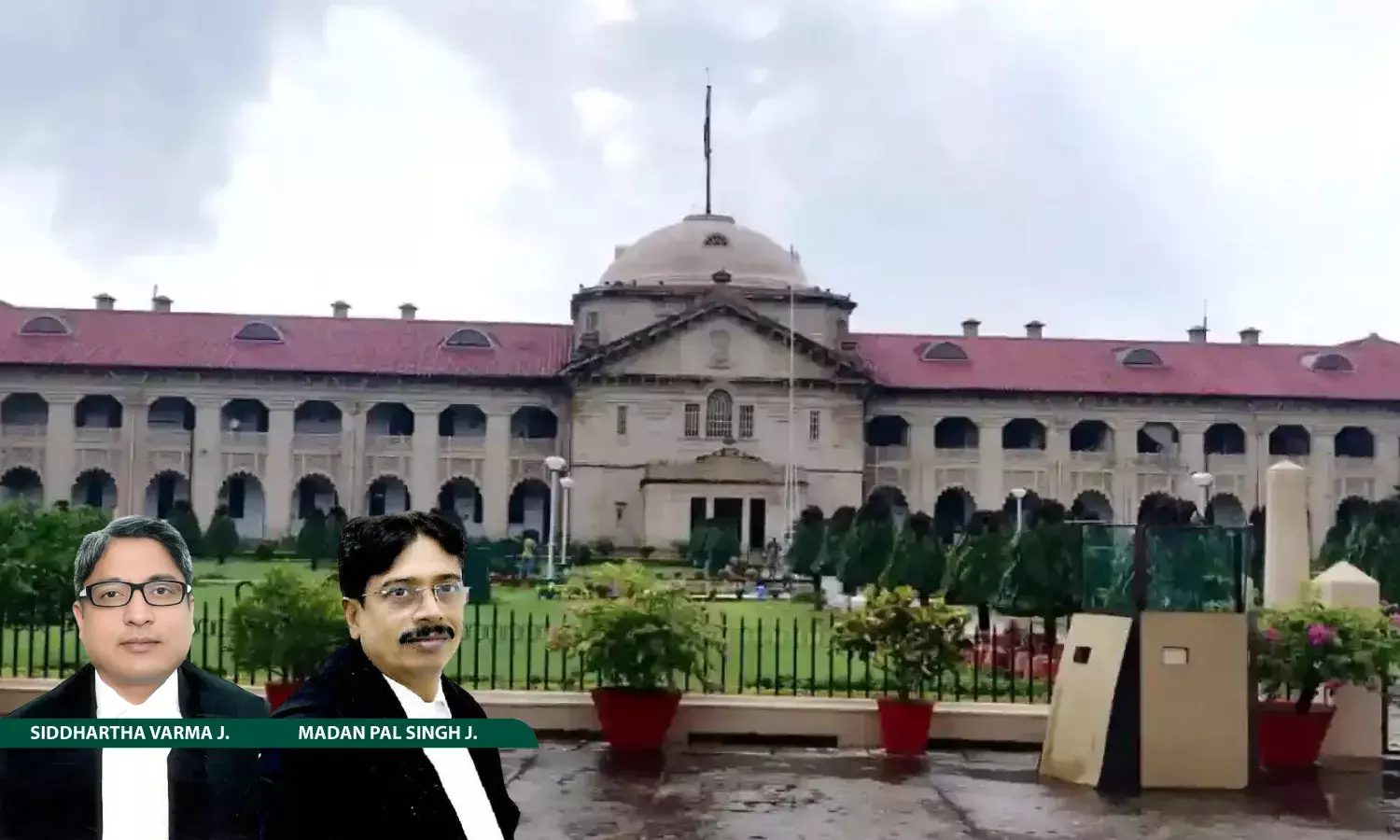Intermediary Not Liable For Acts Of Third Parties On Its Platform: Allahabad High Court Quashes FIR Against CEO Of Shaadi.com
The High Court held that an intermediary facilitating the exchange of information cannot be held responsible for the independent actions of users on its platform under Section 79 of the Information Technology Act.

Justice Siddhartha Varma, Justice Madan Pal Singh, Allahabad High Court
The Allahabad High Court quashed an FIR registered against Anupam Mittal, CEO of the matrimonial platform Shaadi.com, observing that as an intermediary under the Information Technology Act, 2000, he could not be held liable for the independent acts of third parties using the platform.
The Court was hearing a writ petition seeking quashing of the FIR lodged under Sections 420, 384, 507, 120-B IPC and Section 67 of the IT Act at Police Station New Agra, District Agra. The FIR was filed by a user of the platform who had alleged extortion and harassment by certain individuals whose profiles were active on the site.
A Bench comprising Justice Siddhartha Varma and Justice Madan Pal Singh observed: “This Court finds that the petitioner was only a facilitator of exchanging of information and, therefore, for what a ‘third party’ does on the platform could not make the intermediary liable for his or her act.”
Senior Advocate Pranav Tiwary appeared for the petitioner, while the State was represented by Ajay Kumar Chaurasia, G.A.
Background
The FIR was registered on a complaint in which it was alleged that after subscribing to Shaadi.com, the informant was subjected to harassment by certain individuals operating under verified profiles. It was alleged that one user recorded obscene videos and demanded money for extortion. The informant claimed that despite raising complaints with the platform’s customer care and the CEO personally, no remedial action was taken. The State and the informant argued that multiple unverified profiles had been allowed to operate on the platform, and hence, the intermediary could not escape liability.
The petitioner, however, argued that Shaadi.com is recognised as an intermediary under Section 2(w) of the IT Act and is thus protected by Section 79, which exempts intermediaries from liability for third-party content.
It was further contended that the platform had robust due diligence mechanisms under the Information Technology (Intermediary Guidelines and Digital Media Ethics Code) Rules, 2021, including OTP verification, deletion of suspicious profiles, and compliance with government advisories.
Court’s Observations
The Allahabad High Court considered precedents including Google India Pvt. Ltd. v. Visaka Industries (2020), and Flipkart Internet Pvt. Ltd. v. State of U.P. (2022) and reiterated that Section 79 of the IT Act provides a ‘safe harbour’ to intermediaries, shielding them from liability for third-party actions, unless they fail to remove content after a valid court order or government directive.
Therefore, on the IT Act charge, the High Court observed that, “Since the petitioner was given the protection of Section 79 of the IT Act, the offence under Section 67 of the IT Act was also not made out.” It was further emphasised that “the petitioner was only a Chief Executive Officer and when the company was not made a party to the offence then the investigation could not proceed with.”
The High Court, while taking note of the petitioner’s submission that due diligence mechanisms were in place, observed that, “…as and when complaints were received actions were definitely taken and we also definitely find that the intermediary i.e. the company of which the petitioner was a Chief Executive Officer had the protection of Section 79 (1) and (2) of the IT Act and there was definitely no abetment from the side of the company which was running the platform.”
Furthermore, the Bench, while referring to Issac Isanga Musumba vs. State of Maharashtra (2014), noted that the informant had not paid any money as alleged in the extortion charge and therefore no offence under Section 384 IPC was made out. Similarly, the Bench observed, there was no dishonest inducement attributable to the petitioner to sustain a charge under Section 420 IPC.
The Court also referred to Lovely Salhotra v. State (NCT of Delhi) (2018) to hold that the FIR could be quashed against one of the accused even if it continued against others.
Conclusion
The Allahabad High Court concluded that no case was made out against the petitioner either under the IPC or the IT Act. Accordingly, the writ petition was allowed and the FIR vis-à-vis the petitioner was quashed.
Cause Title: Anupam Mittal Versus The State Of UP And 2 Others (Neutral Citation: 2025:AHC:174716-DB)
Appearances
Petitioner: Senior Advocate Pranav Tiwary, with Advocate Anurag Vajpeyi
Respondents: Ajay Kumar Chaurasia, G.A., Advocate Sunil Kumar Gaur


